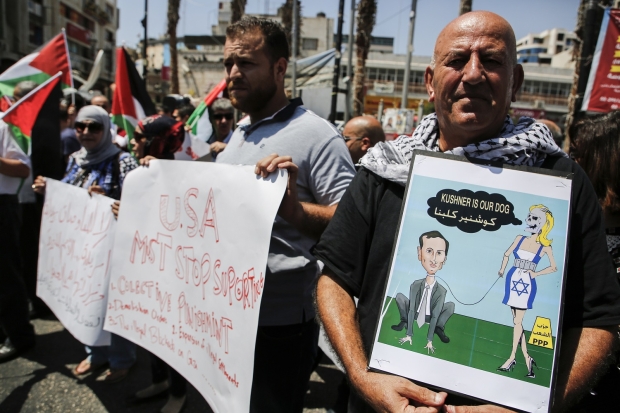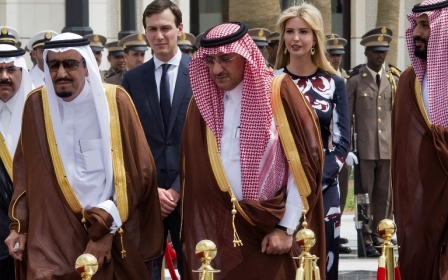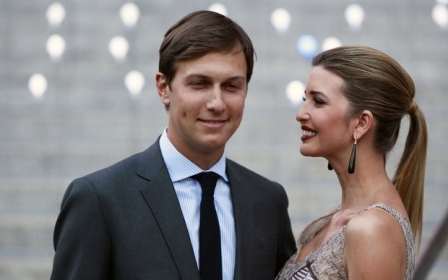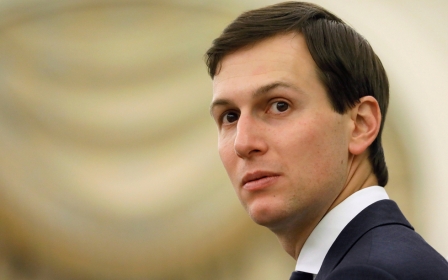Jared Kushner discusses peace with Netanyahu, Abbas

White House aide Jared Kushner held talks on the Israeli-Palestinian conflict on Thursday with the aim of restarting long-stalled peace efforts, but pessimism was high over US President Donald Trump's pledge to reach the "ultimate deal".
The visit came with both Palestinian President Mahmoud Abbas and Israeli Prime Minister Benjamin Netanyahu in difficult positions to make major concessions, some analysts said, and no details have emerged of how Trump's team might would overcome that.
Trump also faces a range of crises in addition to controversies at home that may make it difficult for him to focus on the complexities of a major Israeli-Palestinian peace push.
"We have a lot of things to talk about - how to advance peace, stability and security in our region, prosperity too," Netanyahu said in brief public remarks as he met Kushner in Tel Aviv.
"And I think all of them are within our reach."
Kushner, a 36-year-old real estate developer with little experience of international diplomacy or political negotiation, arrived in Israel on Wednesday with US Middle East envoy Jason Greenblatt after meeting Arab leaders in the Gulf, Egypt and Jordan.
"The president is very committed to achieving a solution here that will be able to bring prosperity and peace to all people in this area," Kushner said.
A statement from Netanyahu's office later described the talks with the US delegation as "constructive and substantive," without adding further details.
"The prime minister looks forward to continuing those discussions in the weeks ahead," it said.
Abbas spokesman Nabil Abu Rudainah said Kushner's visit may prove significant, particularly because of the envoy's consultations with regional allies this week.
"This may create a new chance to reach a settlement based on the two-state solution and the Arab initiative, and stop the current deterioration of the peace process," he said.
Abu Rudainah was referring to a 2002 Arab League initiative that offers Israel diplomatic recognition from Arab countries in return for a statehood deal with the Palestinians and a full Israeli withdrawal from territory captured in a 1967 war.
Ahmed Majdalani, a senior Palestinian Liberation Organisation official who is close to Abbas, told AFP on Thursday that one option if no progress is made would be to dissolve the Palestinian Authority - a threat that has been made in the past.
That would, in theory, leave Israel with the responsibility of governing and providing services to Palestinian cities in the occupied West Bank.
But at the same time, Majdalani said they could also unilaterally declare Palestinian statehood.
He said that option was under consideration because "the American administration has not presented any initiative until now, while the Israelis continue with their settlement activities and refuse to abide by obligations they signed up to".
A couple of dozen Palestinians protested Kushner's visit on Thursday in Ramallah, burning the Israeli flag and pictures of Trump.
Stay informed with MEE's newsletters
Sign up to get the latest alerts, insights and analysis, starting with Turkey Unpacked
Middle East Eye delivers independent and unrivalled coverage and analysis of the Middle East, North Africa and beyond. To learn more about republishing this content and the associated fees, please fill out this form. More about MEE can be found here.





